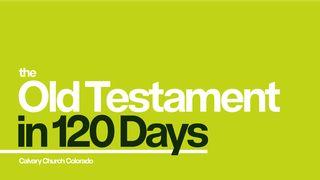Awed By Christ’s Resurrection: 6 Days Of DecreaseSample

Holy Grieves
Jesus’ emotions and actions in the days following the Triumphal Entry were something less (far less) than placid. He wept over Jerusalem, forcefully cleared the temple, cursed a fig tree, confounded religious leaders, told pointed parables, and experienced emotional distress. This is not the carefree Jesus with soft backlit curls and spotless, wrinkle-free garments sitting beside a bubbling brook depicted in the old family Bible. Frankly, I like this Jesus better and I am going to guess that you do too. But in order for us to let Jesus be Jesus, we must make room in His life, and in our own, for a broader range of emotions and actions in our working definition of holy.
Holy grieves. (Think: ugly cry.) Embedded in his account of the Triumphal Entry, Luke relays Jesus’ guttural response when He sees the city of Jerusalem: Jesus wept at the sight. Luke chose the word κλαίω (klaiō) to express Jesus’ grief. Alsotranslated lament, wail, and cry, klaiō isused to express “grief at parting, remorse, [and] sorrow for the dead.” Jesus grieved for a people who would not know peace. Jesus grieved for the city that would pay for its spiritual blindness with destruction. Holy grieves.
Today’s Fast: Halos
Halos, coiffured hair, and even the beloved “Away in the Manger’s” “no crying he makes” reflect our theological struggle with Jesus’ incarnation. When the “Word became flesh and made his dwelling among us” (John 1:14), He was not born with a halo. Of course He cried. Crying is not sin. Of course He did not have perfect backlit hair. Messy is not sin.
One of the reasons we must wrestle with the mystery of the Incarnation is because if we are not seasoned with the wrestling, we tend to offer utterly unhelpful things to others and to ourselves such as, "You shouldn’t cry, grieve, wail, or weep. God is in control. He works all things for the good of those who love Him . . . so there’s no need to feel _____.” No one understood God’s goodness and control more than Jesus, and He still wept. Which means we can too.
Today, fast the halos of false definitions of holy. Ask God where He is weeping in your life and in the world and join Him there. It is never weakness to grieve where God is grieving.
Scripture
About this Plan

Drawn from 40 Days of Decrease, this plan emphasizes a different type of fast. What if you fasted collecting praise in order to un-clutter your generation's view of Jesus? What if you fasted avoidance mechanisms that surface when you face the unknown? Study Jesus’ call to abandon the world’s illusions, embrace His kingdom’s reality, and journey cross-ward and beyond. By Alicia Britt Chole.
More
Related plans

It Starts With One

What Happened to Us in Eden? - Psychology of the Fall

Advent Meditations: Joy

God Still Speaks

The Old Testament in 120 Days Reading Plan

7 Days to Fall in Love With Jesus – Jean-Luc Trachsel

The Armor of God

All the Feels - Leading Our Emotions

Written in Heaven: His Story, Our Lives
